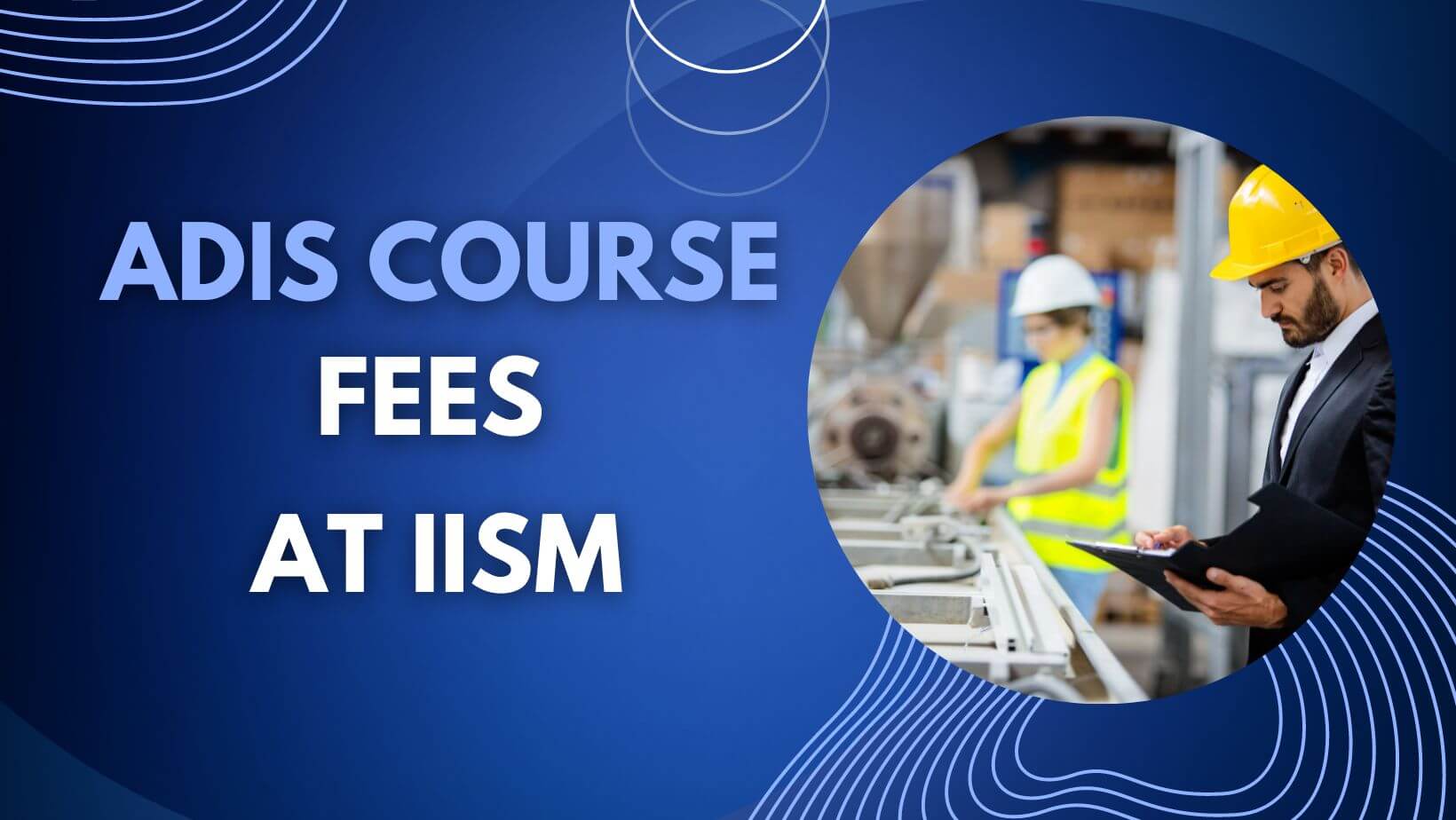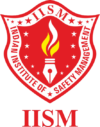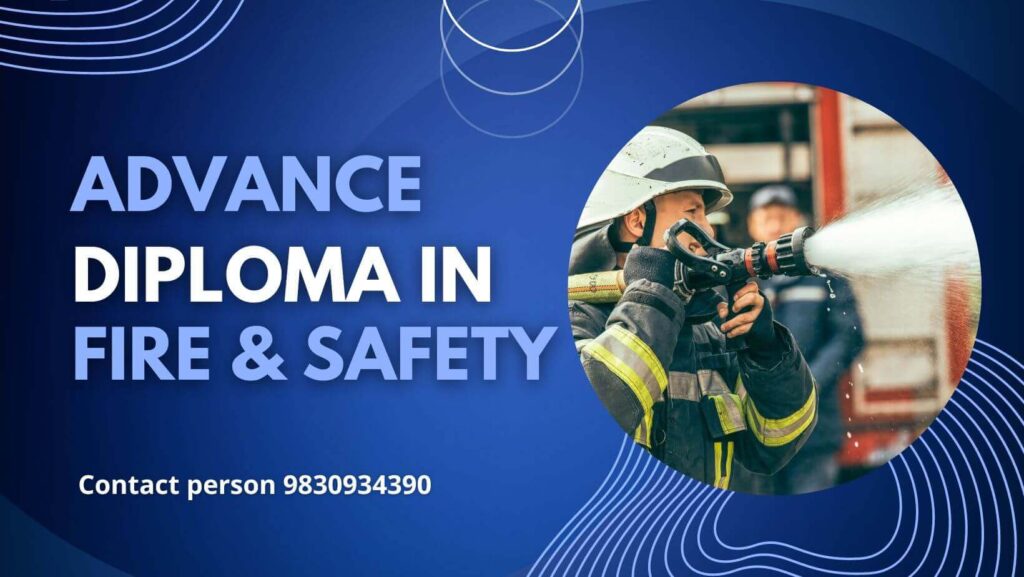ADIS Course Fees: A Comprehensive Guide to Pursue a Career in Safety Management at Indian Institute of Safety Management (IISM)
If you are considering a rewarding career in the field of safety management, enrolling in an ADIS (Advanced Diploma in Industrial Safety) course can be an excellent choice. With safety becoming a top priority across industries, the demand for skilled safety professionals is on the rise. In this blog post, we will explore the ADIS course fees, its significance, and why the Indian Institute of Safety Management (IISM) stands out as the best institute to pursue this course.
Understanding the Importance of ADIS Course
The ADIS course is designed to equip individuals with comprehensive knowledge and skills in industrial safety, health, and environmental management. This course is recognized for producing adept safety professionals who can effectively identify and mitigate potential hazards in various industries. Successful completion of the ADIS course opens doors to a wide range of opportunities, making it a preferred choice among aspirants seeking a stable and fulfilling career.

ADIS Course Fees: Investing in Your Future
When it comes to investing in education and career development, the ADIS course fees is a critical factor to consider. The fee for the ADIS course may vary depending on the institute and the facilities offered. As of now, at the Indian Institute of Safety Management (IISM), the ADIS course fees is structured reasonably, taking into consideration the quality of education, practical exposure, and placement assistance provided.
ADIS Course Fees at IISM
| 1st Semester | Rs.30,000/- (Session fees) |
| 2nd Semester | Rs.30,000/- (Session fees) |
| Library and Security Caution Deposit | Rs.2,000/- (Refundable) |
| Uniform, ID card and Safety Shoes | Rs.3,000/- (Non Refundable) |
| Prospectus fees | Rs.300/- |
| Total ADIS Course Fees | Rs.65,300/- |
So, the ADIS Course fees at IISM is Rs.65,300/-. This investment covers tuition, study materials, practical training, and access to the institute’s infrastructure.
Benefits of Choosing Indian Institute of Safety Management (IISM)
- Reputed Institution: IISM, affiliated by West Bengal State Council of Technical & Vocational Education and Skill Development, has earned a strong reputation as a leading institute in safety management education. With more than a decade of experience, IISM has consistently produced skilled professionals who have excelled in their safety-related careers.
- Experienced Faculty: The institute boasts a team of highly qualified and experienced faculty members who are dedicated to imparting practical knowledge and ensuring that students develop a strong foundation in safety management principles.
- Industry-Oriented Curriculum: The ADIS course curriculum at IISM is designed to align with the current industry trends and requirements. It encompasses a perfect balance of theoretical concepts and hands-on training to prepare students for real-world challenges.
- State-of-the-art Facilities: IISM provides state-of-the-art facilities, including well-equipped laboratories and simulated training environments, ensuring that students gain practical experience in dealing with safety scenarios.
- Internship and Placement Support: IISM goes the extra mile to support students during their training period and after course completion. The institute assists students with internship opportunities and facilitates placement drives with reputed organizations.
- Alumni Network: The institute boasts a vast and successful alumni network, providing opportunities for networking, mentorship, and career guidance for aspiring safety professionals.
Job Scopes after ADIS Course
The standard course ADIS Course fees raise concerns among students and parents regarding post-course job prospects. Here are some of the lucrative job scopes available to ADIS course graduates:
- Safety Officer: As a safety officer, you will be responsible for ensuring that all safety protocols and procedures are followed in the workplace. Your duties may include conducting safety audits, risk assessments, and providing safety training to employees.
- Health and Safety Manager: In this role, you will oversee the entire safety management system of an organization. You will develop safety policies, implement safety programs, and monitor their effectiveness to create a safe working environment.
- Safety Engineer: Safety engineers are tasked with designing and implementing safety systems and equipment. They analyze potential hazards, evaluate safety measures, and recommend improvements to enhance workplace safety.
- Industrial Hygienist: Industrial hygienists focus on identifying and controlling workplace hazards that may affect the health and well-being of employees. They conduct air quality tests, noise assessments, and ergonomic evaluations to maintain a healthy work environment.
- Environmental Health and Safety (EHS) Specialist: EHS specialists ensure that an organization complies with environmental regulations while also maintaining workplace safety standards. They may develop environmental policies, conduct environmental impact assessments, and manage waste disposal.
- Safety Consultant: Safety consultants work independently or with consulting firms, providing expert advice and solutions to businesses seeking to improve their safety standards and compliance.
- Safety Auditor: Safety auditors conduct thorough assessments of an organization’s safety practices and policies to identify areas that require improvement. They play a crucial role in helping companies achieve and maintain compliance with safety regulations.
- Construction Safety Manager: In the construction industry, safety managers oversee safety procedures at construction sites, identify potential hazards, and implement safety measures to prevent accidents and injuries.
- Training and Development Manager: ADIS graduates can also pursue a career in safety training and development. They design and deliver safety training programs to educate employees about safety protocols and procedures.
- Risk Manager: Risk managers assess potential risks that an organization may face and develop strategies to minimize or mitigate them. They play a crucial role in preventing accidents and financial losses
Salary after ADIS Course in West Bengal and in India
The standard course ADIS Course fees raise concerns among students and parents regarding post-course salary prospects. Here’s an overview of the matter.
The salary after ADIS (Advance Diploma in Industrial Safety) Course in West Bengal and in India can vary depending on the employer, the experience of the safety officer, and the location. However, the average starting salary for a safety officer with an ADIS degree is around ₹1.4 lakhs per year (₹11.7k per month). With experience, the salary can go up to ₹5 lakhs per year or more.
In West Bengal, the average salary for a safety officer with an ADIS degree is slightly lower than the national average. This is because the industrial sector in West Bengal is not as developed as in other parts of India. However, there are still many opportunities for safety officers in West Bengal, and the salary is expected to increase in the coming years.
Here are some of the factors that can affect the salary of a safety officer with an ADIS degree:
- The employer: The salary of a safety officer can vary depending on the size and type of the employer. For example, safety officers working in large multinational companies tend to earn higher salaries than those working in small, local businesses.
- The experience of the safety officer: The salary of a safety officer will also increase with experience. Safety officers with 5+ years of experience can earn salaries of ₹3 lakhs per year or more.
- The location: The salary of a safety officer can also vary depending on the location. Safety officers working in major cities tend to earn higher salaries than those working in rural areas.
FAQ on ADIS Course Fees
- What is ADIS?
- ADIS stands for Advance Diploma in Industrial Safety. It is a postgraduate diploma in industrial safety.
- What are the eligibility criteria for ADIS course?
- The eligibility criteria for ADIS course vary from institute to institute. However, the general eligibility criteria include a bachelor’s degree in any discipline and 2 years of work experience in the safety field.
- What are the career prospects after ADIS course?
- The career prospects after ADIS course are very good. With an ADIS degree, you can work as a safety officer, safety consultant, or safety manager in a variety of industries.
- How long does it take to complete ADIS course?
- The duration of ADIS course varies from institute to institute. However, the course typically takes 1-2 years to complete.
- What is the ADIS course fees?
- The ADIS course fees vary from institute to institute. But the average ADIS Course fee is lies between Rs.60,000/- to Rs.80,000/-
Conclusion
The ADIS course fees at the Indian Institute of Safety Management (IISM) is a wise investment in your future as it opens doors to numerous career opportunities in the field of safety management. By pursuing this course at IISM, you are ensuring that you receive top-notch education, exposure to industry standards, and valuable placement support.
Embark on your journey to become a proficient safety professional by enrolling in the ADIS course at IISM. The investment in your education today will reap rewards for years to come, as you contribute to creating safer workplaces and making a positive impact in society. Take the first step towards a rewarding career by choosing IISM as your trusted partner in safety education.







